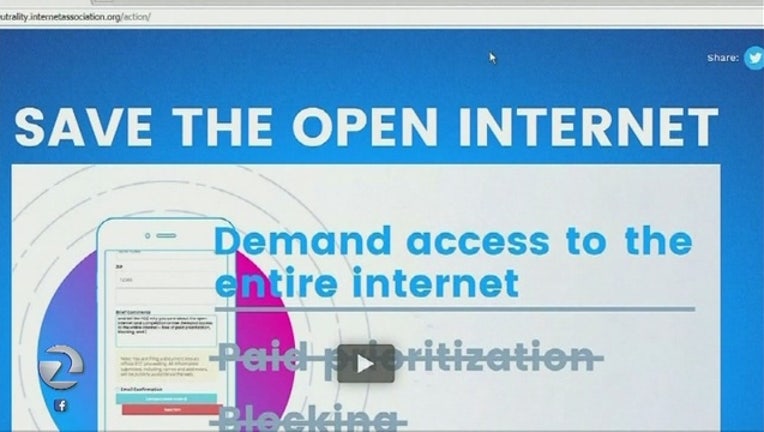Net neutrality backers fume as California bill watered down

By JONATHAN J. COOPER
Associated Press
SACRAMENTO, Calif. (AP) -- California legislation that was billed as one of the nation's most aggressive efforts to revive net neutrality was watered down during a tense legislative hearing Wednesday, leading the author to repudiate what he called a "mutilated" bill.
The legislation has been closely watched by energetic net neutrality advocates, who quickly denounced the decision.
Sen. Scott Wiener has been pushing legislation to revive regulations repealed last year by the Federal Communications Commission that prevented internet companies from exercising more control over what people watch and see over the internet.
Wiener urged the Communications and Conveyance Committee not to move forward his legislation, but the panel voted 8-2 to advance it to another Assembly committee.
Wiener, a San Francisco Democrat, said passing the diluted measure would be worse than passing nothing at all.
"California is the progressive bastion for the country right now. People look to us to lead the way," Wiener told The Associated Press. "If California passes a weak, watered-down, ineffectual net neutrality bill, that sets a terrible standard not just for other states but for the federal government."
Assemblyman Miguel Santiago, a Los Angeles Democrat who chairs the committee, did not give a specific reason for the amendments. In a tense exchange with Wiener, he said his committee deserves input and said Wiener was trying to be a martyr for a purest view of net neutrality.
Internet providers remain opposed even with the changes. They say it's unrealistic to expect them to comply with internet regulations that vary across the country.
"We strongly believe that state-by-state regulation of the internet is inappropriate," Steve Carlson of the wireless industry group CTIA said.
Wiener's bill would prohibit internet providers from blocking or slowing data based on its content or from favoring websites or video streams from companies that pay extra. Those protections remain.
But other provisions Wiener sought were removed -- including a ban on so-called "zero rating," in which internet providers don't count content from their own subsidiaries or partners against a monthly data cap. The bill also no-longer includes provisions that Wiener says are necessary to close loopholes that might allow internet providers to get around the spirit of net neutrality.
Wiener's bill has drew a letter of support from U.S. House Minority Leader Nancy Pelosi, a San Francisco Democrat who rarely weighs in on state legislative matters.
"I urge you to maintain all of the comprehensive protections in SB 822 to ensure that California citizens, not the companies we pay to get online, are able to decide which apps, services and websites they use," Pelosi wrote in the letter dated Monday.
U.S. Rep. Edward Markey, a Massachusetts Democrat, tweeted a day before the hearing that "California lawmakers need to stay strong; everyone is watching."

